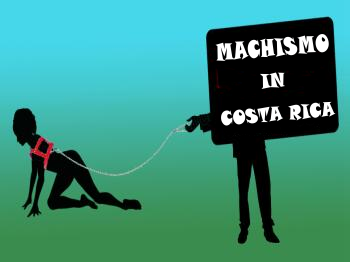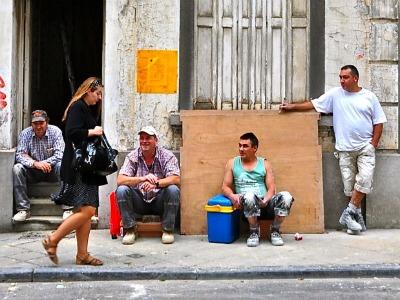Estimated Reading Time: 5 Minutes
 Machismo is part of the Latin American culture and though education and travel are changing this gender gap, you will still see a lot of machismo in the lower and middle social classes in Costa Rica. But what is machismo?
Machismo is part of the Latin American culture and though education and travel are changing this gender gap, you will still see a lot of machismo in the lower and middle social classes in Costa Rica. But what is machismo?
Machismo is a concept of masculine pride, associated with men feeling very manly and at the same time denigrating feminine or less masculine characteristics or behavior.
Macho is a Spanish word and in the Merriam – Webster encyclopedia is explained as having or showing qualities (such as very noticeable strength and aggression) that agree with traditional ideas about what men are like: manly or masculine in a very noticeable or exaggerated way, something you will have to learn with when living in Costa Rica.
Machismo is part of the Latin culture; therefore machismo is very visible in Costa Rica, even though you will find a lot of it in other cultures as well. For many men, having power over women, keeping them in line by control, treating them as a servant, and even getting to the point of violence is part of machismo.
I don’t want to go too deep into how machismo affects society itself and its members because that is not what my blog is all about. I just want to show you some details that you, as a foreign person from a different culture, might encounter when living in Costa Rica, so you will recognize machismo for what it is.
Piropos or catcalling
25 Years ago, it was pretty normal to hear cat-calling (called piropos) when a mother and daughter passed by on the street, like “hola suegra” or “hola machita linda” and even more colorful comments or even vulgar ones (I have an open mind but many of them I wouldn’t publish for anything in the world). You can read about those in next week’s blog. Whistling and making noises like “tssssssssssssssssss” were also normal, sounds you rarely see anymore.

Touching
Machismo would even allow men to do things that in other cultures are totally unacceptable. Passing by men would touch my blond sisters’ butt while crossing the street in downtown San Jose. And the touching men were not all low-class vultures, I’ve seen well-educated men like doctors and lawyers behave like that. Women were not safe from being touched by strangers anywhere.
Daredevils
Some years ago, I took my wife and her grandmother for a drink and some snacks to a well-known seafood restaurant and while enjoying dinner, an elder man stopped by our table to tell my wife how beautiful she looked. He had quite some nerve.

Education and travel
Costa Ricans generally have a high level of education and are much better informed about other cultures than ever before. Ticos also travel more than ever, where they are confronted with those other cultures in person. Access to more and better information through TV and Internet has changed the “mindset” of all educated Ticos
Women’s place in society
In a traditional household, the man is expected to work and provide for his family. His wife stays home to care for the children.
Also in Costa Rica, this has changed, as women study and get sometimes better-paid jobs than their husbands. When this happens, you will still see a bit of machismo coming up here and there, but the women’s position in Costarican society has definitely changed forever.

Being gay is more accepted now
30 years ago, everybody would whistle and yell improper words at a gay man walking by in a public swimming pool. Gay kids in schools were having their life made miserable at that time. Gay people are now very accepted in Costa Rica by most. This, of course, shows the disappearance of machismo in Costa Rican culture. Although religious people are still not accepting gay people, the general population is now much more tolerant than it was in 1980.
Foreign women in Costa Rica
For many years, it was very difficult for foreign single women to live alone in Costa Rica. Fortunately, education and respect, have changed this. I know of many foreign women of all ages to live alone and do well. For some foreign women who married a Tico, it was difficult to adjust to machismo. But I know a lot of great mixed marriages where machismo is not an issue.
In the larger cities of Costa Rica, you will hardly ever see piropos or a whistle anymore. But if you go to the smaller villages, there is still a chance to catch one. When you go, make sure you keep your blond 18-year old in view and close your ears.
If you like this blog, subscribe to my newsletter by clicking the banner below.
I DO want to remind our readers that we appreciate any referrals you can send us. Also, remember GoDutch Realty when talking about your home in Costa Rica to friends and family. We appreciate it.

























